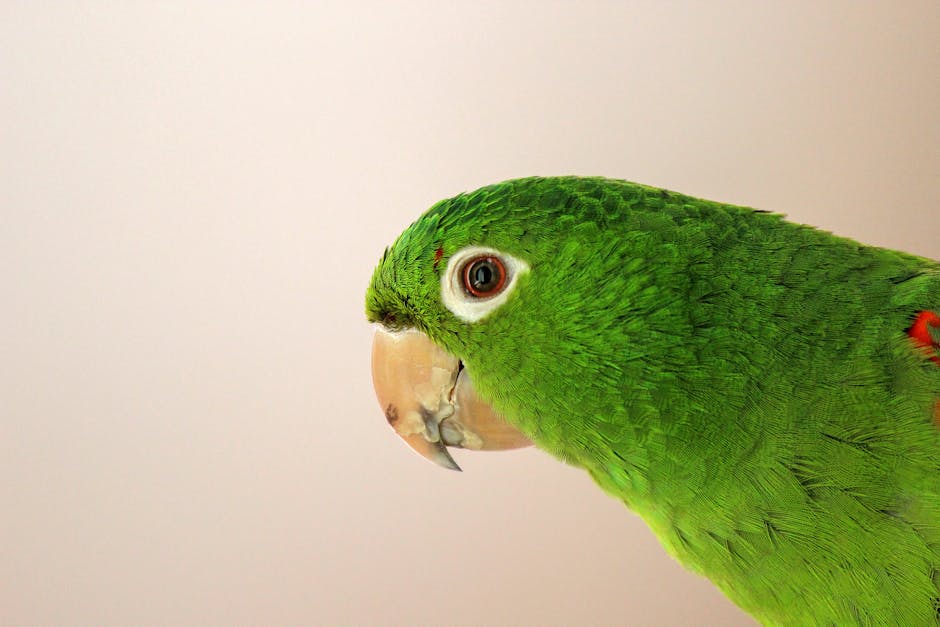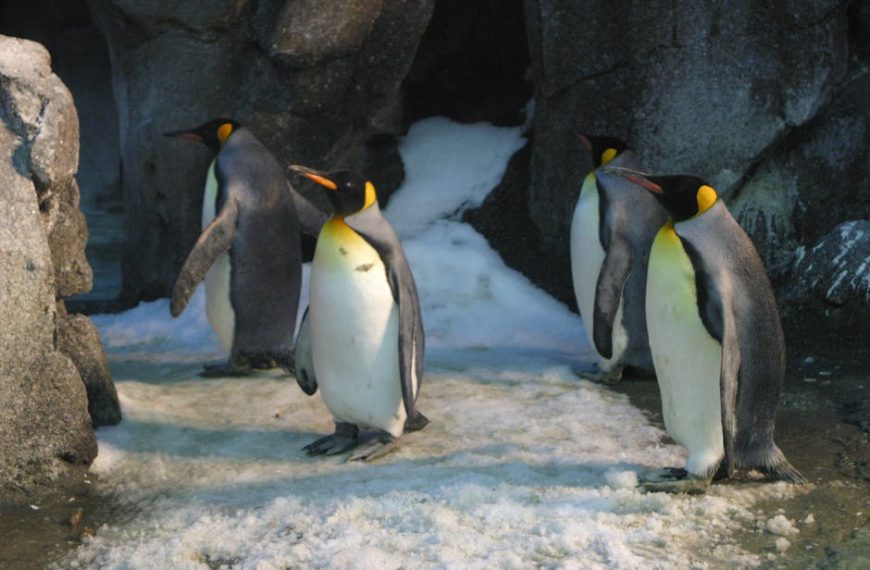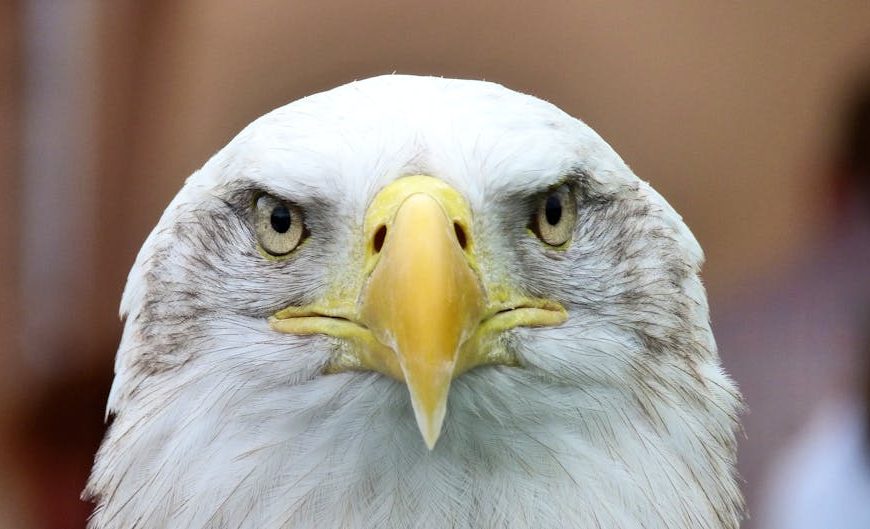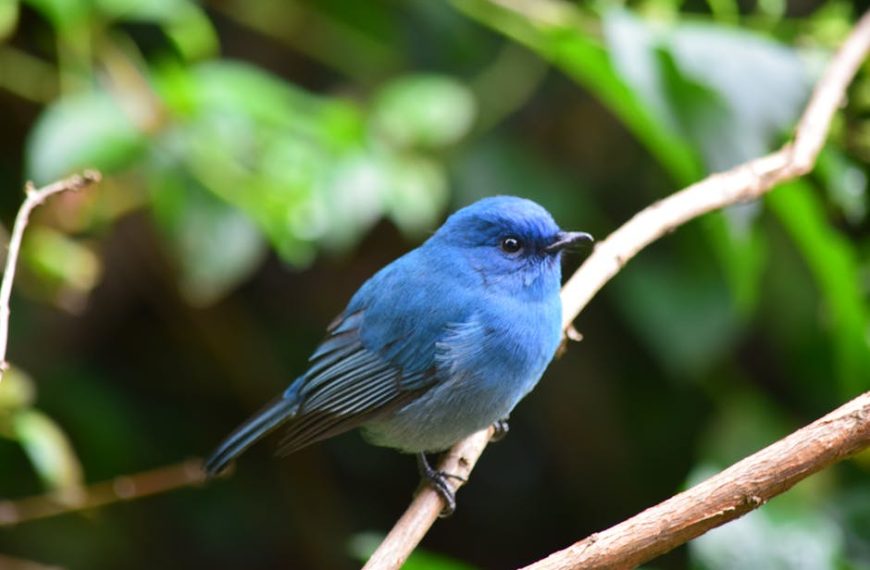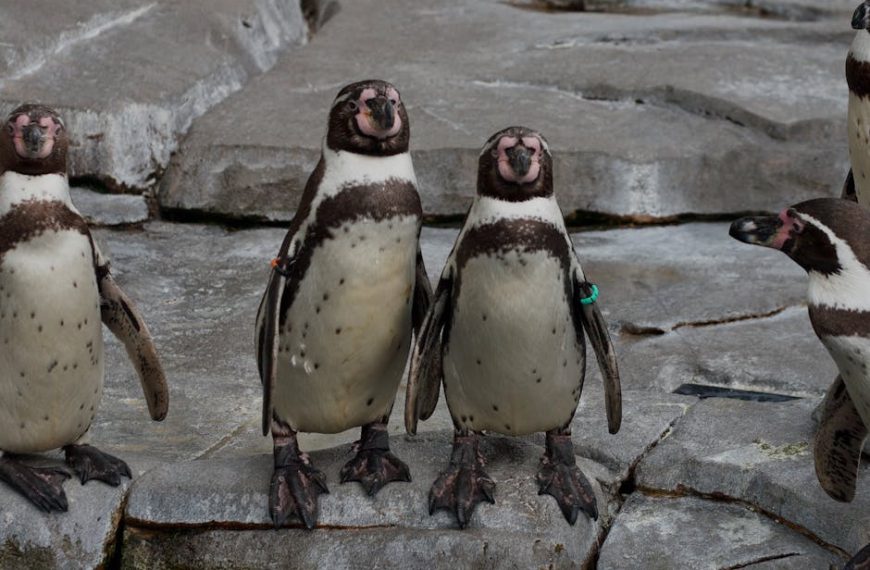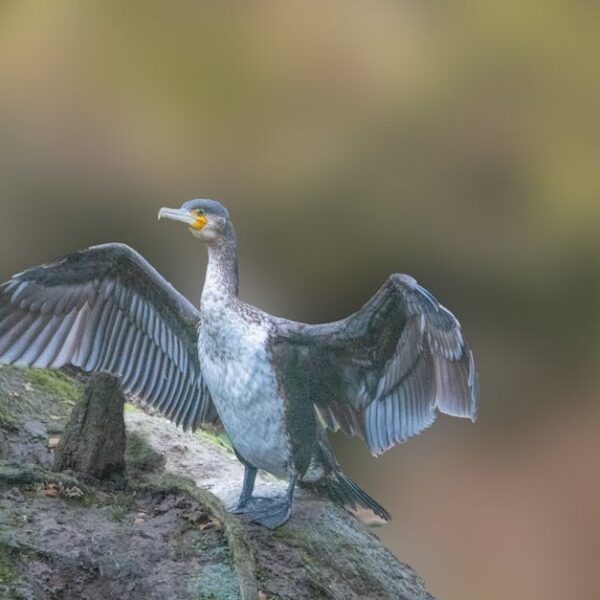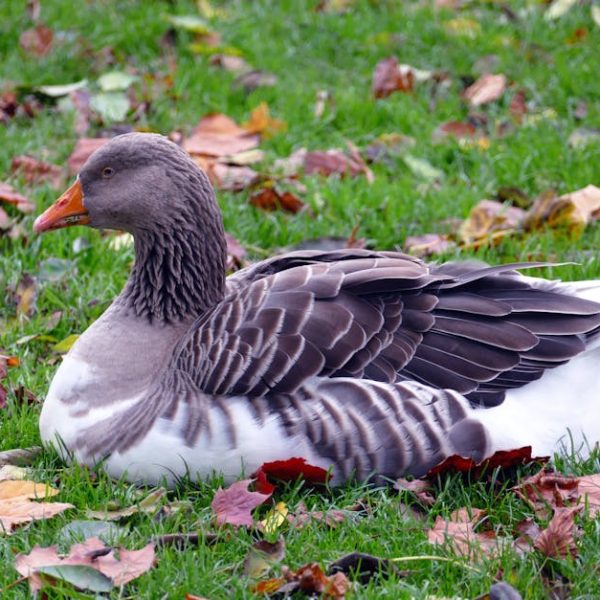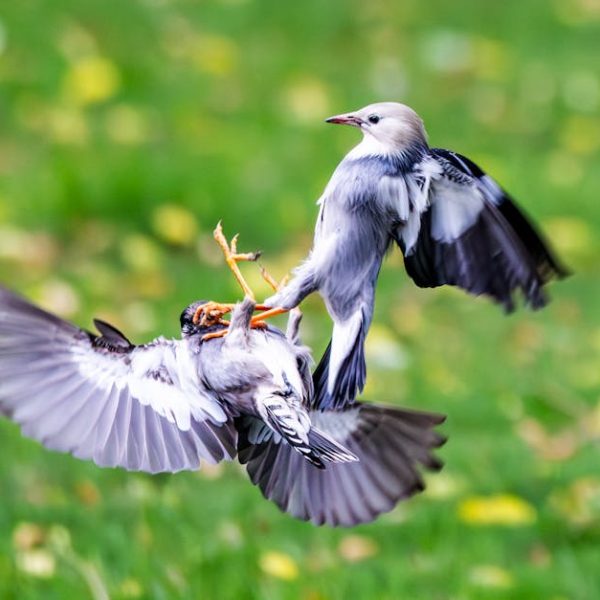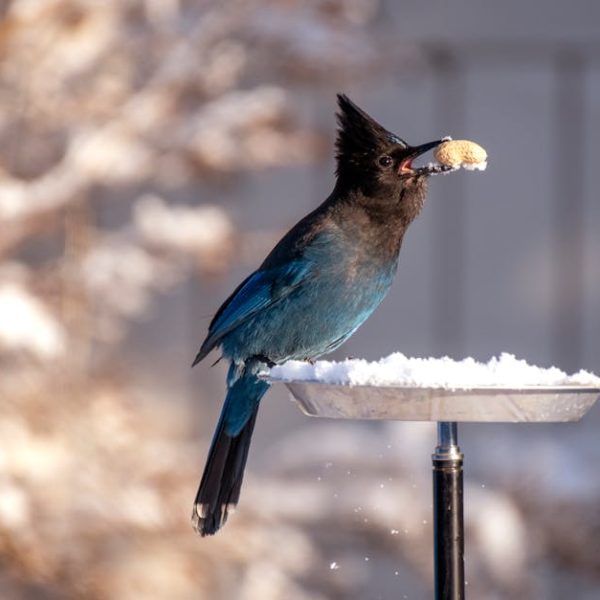Birds’ capability to mimic human speech is a result of their instinctual behavior to copy sounds in their environment. These bird species possess unique physical abilities and advanced neuronal networks, which enable them to replicate complex sounds. Parrots, Mynahs, Starlings, and Crows are among those that can astound us with their uncanny imitation skills.
Let’s clarify something here first. A Pro Tip: Birds, while capable of mimicking our words, do not inherently understand these words’ meanings like humans. They associate these sounds with behaviors or rewards, creating a semblance of comprehension, but lack a true understanding of language in the way humans comprehend it.
So, what influences a bird’s ability to mimic? Major elements include:
- Species: Not all birds can mimic sounds, let alone human speech. The bird’s species is a primary determinant of its mimicking capability.
- Age: Birds are more likely to pick up new sounds and words when they’re younger.
- Exposure: A bird’s interaction with humans and a language-rich environment significantly influences its mimicking abilities.
Popular Talking Bird Species: Parrots
A quintessential image when it comes to talking birds, Parrots are admired for their vibrant colors, intellectual capabilities, and exceptional mimicking abilities.
Here’s a Best Practice: A stimulating and healthy environment is vital for nurturing your parrot’s talking abilities. Regular interaction, a variety of toys, and a balanced diet can do wonders for your parrot’s capacities to mimic.
Speaking of parrots, let’s cast a spotlight on some popular types and their speech abilities:
| Parrot Species | Common Characteristics | Speech Capabilities |
|---|---|---|
| African Grey Parrots | Intelligent, sensitive, and requires a lot of mental stimulation | Known for their exceptional speech abilities and wide vocabulary |
| Amazon Parrots | Social, playful, and quite vocal | Adept at mimicking human speech with remarkable clarity |
| Budgerigars (Budgies) | Friendly, active, and an ideal choice for new bird owners | Capable of learning several words and phrases |
Other Talking Bird Species: Mynahs, Crows, and Starlings
Parrots are not the only verbose creatures in the bird world. Other species such as Mynahs, Crows, and Starlings hold their ground in the realm of speech mimicry.
Checklist: If you’re considering these species, remember their essential needs for a language-friendly environment – a suitable habitat, balanced diet, and adequate stimulation, including regular interaction with their human companions.
Pros: These species can produce a remarkable variety of sounds, making the interaction interesting and full of surprises.
Cons: Their mimicking abilities may not reach the breadth and depth of many parrots. Plus, they may require more energy and attention to foster their mimicking capabilities.
As always, due diligence and understanding your bird’s unique needs are paramount to their well-being and the growth of their mimicking abilities.
Maximizing Your Bird’s Talking Potential
Harnessing the full potential of a talking bird may not be an overnight task but it can be an immensely gratifying one. Here are some ways to optimally foster your bird’s vocalization:
- Frequency of Interaction: Birds learn to talk faster and effectively when they interact with humans regularly.
- Positive Reinforcement: Reward your bird during speech training when they make an attempt to mimic. This influences them to repeat the behavior.
- Audio Resources: Audio resources can be a great asset in expanding your bird’s bilingual prowess.
Pro tip: Patience and consistency are crucial. Don’t be disheartened if your bird takes time to mimic sounds or doesn’t talk at all. Each bird has its own pace and extent.
Just one last thing – a key Best Practice is reminded of. Stay clear of harsh language or sounds you don’t want the bird repeating. Their learning doesn’t include a filter; they’ll mimic what they hear consistently.
Misconceptions and Facts About Talking Birds
Talking birds never fail to amaze us, but this awe often leads to a few misconceptions. Let’s debunk some of them.
Myth: All birds can mimic human speech.
Fact: Only specific species of birds can mimic human speech.
Myth: Talking birds understand the human language.
Fact: Birds mimic sounds but do not typically comprehend the meaning of words.
Myth: Birds talk to communicate with humans.
Fact: Birds mimic to blend in with their environment. In captivity, humans become part of their environment.
Here’s a Comparison: Just as humans use language to communicate and express themselves, birds use their own calls and signals for the same purpose. While the mimicking of human speech is a fascinating manifestation of their abilities, it is not ‘communication’ in the complex, human sense of the word.
Key Takeaway:
- Birds’ ability to mimic human speech stems from their instinctual behavior to copy sounds in their environment and not from understanding human language.
- Certain factors contributing to a bird’s ability to mimic sounds include its species, age, and regular exposure to spoken language.
- Parrots, Mynahs, Starlings, and Crows are a few bird species known for their talking abilities. However, keeping these birds requires meeting their unique environmental, dietary, and interaction needs.
- Maximizing a bird’s talking potential involves consistent interaction, reinforcement, and using audio resources. Patience is key, as not all birds will or can mimic sounds.
- Misconceptions about talking birds often revolve around the erroneous belief that all birds can mimic human speech and understand language when in reality, they mimic as part of their adaptation to their environment.
Remember, the birds’ ability to mimic human speech is a fascinating manifestation of their instinctual behavior, not their comprehension of our language. While this might come as a disappointment to some, it rather unveils the Awe-inspiring adaptability and intelligence these creatures possess, making our interactions with them even more meaningful and worthwhile.
FAQs
Q: Are there any health benefits for birds from mimicking human speech?
A: While mimicking human speech does not directly benefit a bird’s health, it’s a sign of positive mental stimulation and socialization, especially for pet birds in a home environment.
Q: Are birds born with the ability to mimic, or is it learned over time?
A: While certain bird species are naturally predisposed to mimic sounds, the extent and clarity of their mimicry are honed over time through exposure and practice.
Q: Are certain breeds or species of birds better at mimicking than others?
A: Yes, species like Parrots, Mynahs, Starlings, and Crows are more adept at mimicking human speech compared to other bird species.
Q: Do talking birds live longer lives compared to non-talking birds?
A: The lifespan of a bird is not directly linked to its ability to mimic human speech. It mostly depends on the species and how well their needs are met in their environment.
Q: Are male birds better at mimicking human speech than female birds?
A: In many bird species, males are usually more vocal and are known to mimic more. However, this doesn’t necessarily mean they are better at mimicking human speech than females. Each bird as an individual will vary in its capacity to mimic sounds.
We encourage you to share this article with those who may find it interesting and explore more posts on our website about birds and their remarkable abilities.
